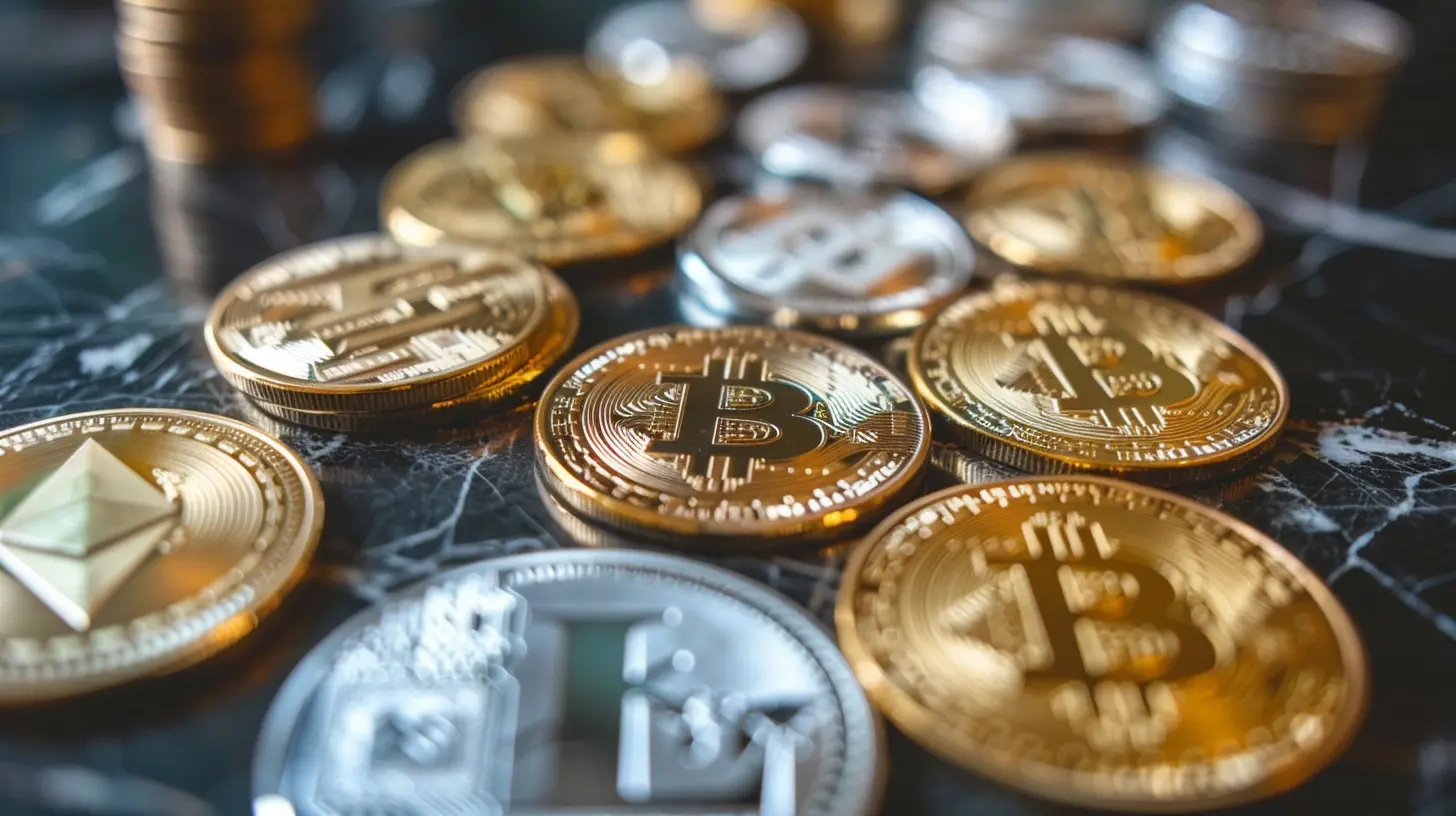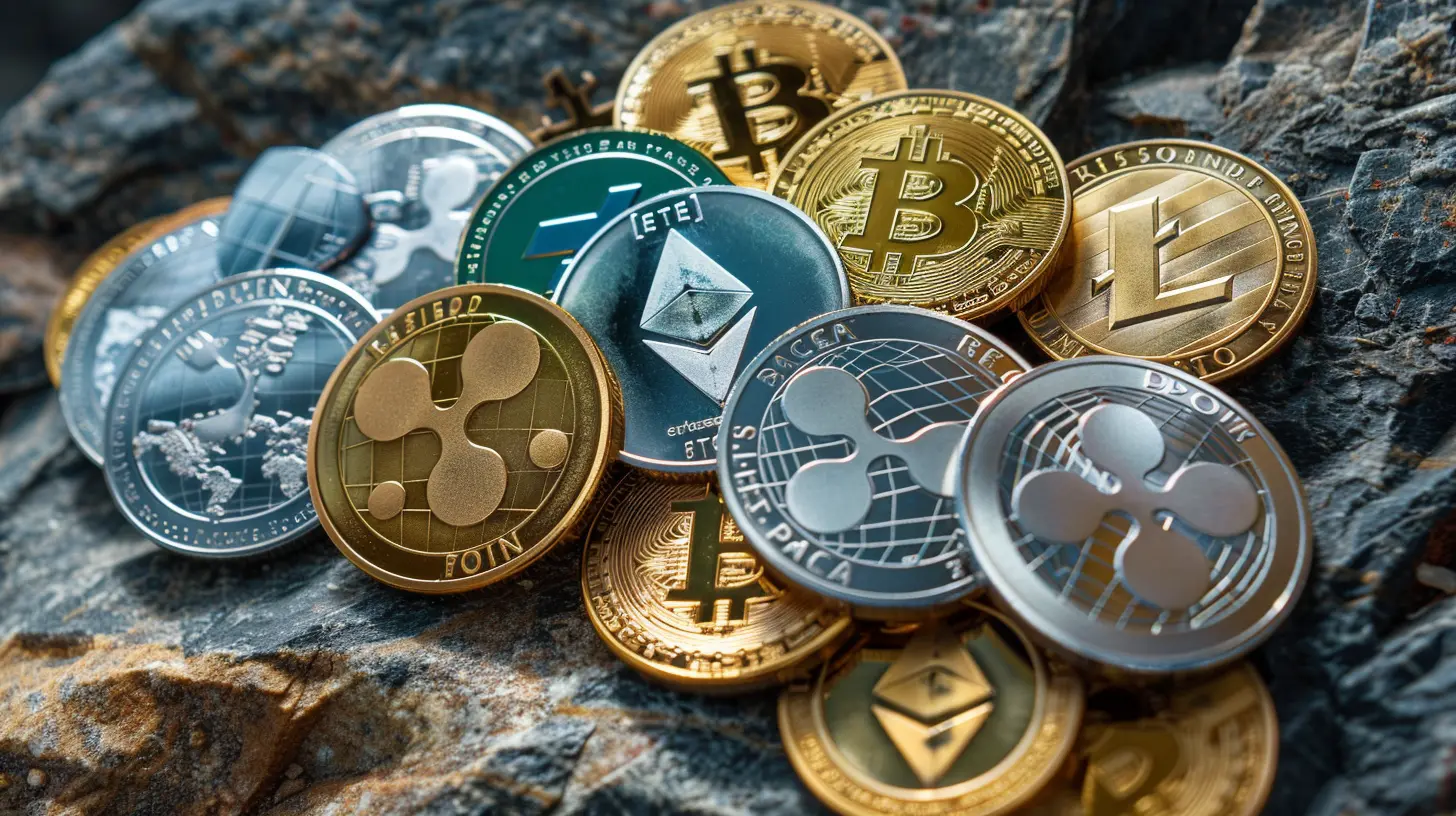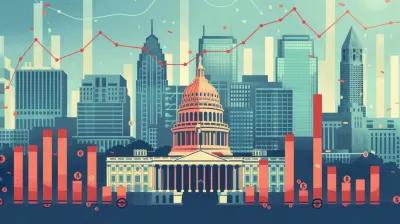The Role of Decentralized Finance in the Crypto Ecosystem
4 November 2025
The financial world is evolving faster than ever, and at the heart of this revolution is Decentralized Finance (DeFi). If you've ever wondered how traditional banking is being challenged by blockchain technology, buckle up—because DeFi is changing the game in ways we never thought possible!
With cryptocurrencies becoming mainstream, DeFi has emerged as a powerful tool that eliminates the need for banks and intermediaries, offering true financial freedom. But what exactly is DeFi, and why is it such a big deal? Let’s dive in!

What is Decentralized Finance (DeFi)?
At its core, Decentralized Finance (DeFi) refers to a financial ecosystem built on blockchain networks, primarily Ethereum. Unlike traditional finance, where banks control transactions, DeFi operates without intermediaries, allowing people to lend, borrow, trade, and earn interest using smart contracts.Imagine a world where you don’t need to trust a bank with your money—you simply rely on code that executes transactions transparently and securely. That’s the magic of DeFi!

How Does DeFi Work?
DeFi operates on blockchain technology, where everything is automated through smart contracts. These are self-executing contracts with terms directly written into code, meaning there’s no need for middlemen like banks or brokers.Here’s how it all comes together:
1. Smart Contracts: These are like vending machines for finance. If you meet the conditions, the contract executes automatically.
2. Decentralized Applications (DApps): Platforms like Uniswap, Aave, and Compound allow users to trade, lend, and borrow without middlemen.
3. Liquidity Pools: Instead of a bank providing funds, users themselves deposit crypto into liquidity pools to enable transactions and earn rewards.
DeFi removes the barriers of traditional finance while offering more transparency, accessibility, and financial control.

Why is DeFi Important in the Crypto Ecosystem?
So, why is everyone talking about DeFi? Because it’s reshaping the financial landscape in various ways:1. Financial Inclusion for Everyone
Ever tried applying for a loan at a bank? The paperwork, background checks, and lengthy approval process can be frustrating. With DeFi, anyone with an internet connection can access financial services—no banks, no credit checks, no discrimination.2. Eliminating Middlemen
Traditional finance relies on intermediaries who take a cut from every transaction. DeFi eliminates these middlemen, reducing costs and increasing efficiency.3. More Transparency and Security
Since DeFi runs on blockchain, every transaction is recorded on a public ledger, making it tamper-proof and fully transparent. You don’t have to worry about hidden fees or sketchy banking practices!4. Earning Passive Income
Want to earn money while you sleep? DeFi allows users to stake, lend, and provide liquidity to earn passive income through interest and rewards. It’s like putting your money to work—but without a banker taking a cut!5. Non-Custodial and Permissionless Access
Unlike banks that can freeze your account or deny service, DeFi platforms are non-custodial, meaning you have full control over your funds at all times. Plus, no one can stop you from participating since DeFi is permissionless.
Major Use Cases of DeFi
DeFi isn’t just a buzzword—it has real-world applications that are already revolutionizing finance. Let’s look at some key use cases:1. Decentralized Lending & Borrowing
Platforms like Aave and Compound allow users to lend their crypto assets and earn interest, while borrowers use those assets as collateral for crypto loans—without needing a credit check!2. Decentralized Exchanges (DEXs)
Ever tried trading crypto on a centralized exchange like Binance? While they’re useful, they still require a third party to process transactions. Decentralized exchanges (DEXs) like Uniswap and SushiSwap enable peer-to-peer trading without intermediaries.3. Yield Farming & Staking
Yield farming and staking allow crypto holders to earn rewards by locking up their assets in liquidity pools. Think of it like earning interest in a savings account—but with higher returns!4. Stablecoins & Payments
Stablecoins like DAI and USDC bring stability to the volatile crypto market, allowing seamless global payments without relying on banks.5. Insurance & Risk Management
DeFi isn’t just about trading—platforms like Nexus Mutual provide decentralized insurance, protecting users from smart contract failures and other risks.Challenges & Risks in DeFi
While DeFi sounds like a dream come true, it’s not without risks. Here are some challenges to keep in mind:1. Smart Contract Vulnerabilities
Since DeFi relies on code, a poorly written smart contract can be exploited by hackers. Security audits are crucial, but risks still exist.2. Scalability Issues
Ethereum, the primary blockchain for DeFi, suffers from high gas fees and network congestion. Ethereum 2.0 and layer-2 solutions like Polygon aim to address this.3. Regulatory Uncertainty
Governments are still figuring out how to regulate DeFi. Sudden regulations could impact the industry’s growth and accessibility.4. Impermanent Loss in Liquidity Pools
Providing liquidity to DeFi protocols comes with the risk of impermanent loss, which happens when asset prices fluctuate significantly.
The Future of DeFi
Despite the challenges, DeFi is here to stay. With continuous innovations in blockchain technology, DeFi will become faster, cheaper, and more secure. Here’s what the future might hold:- Mass Adoption: As DeFi becomes more user-friendly, more people will ditch traditional banks for decentralized alternatives.
- Integration with Traditional Finance: Banks and financial institutions might adopt DeFi protocols rather than compete with them.
- Better Regulation & Security: Striking a balance between decentralization and compliance will make DeFi safer and more accessible.
- Cross-Chain Compatibility: With new technologies enabling different blockchains to communicate, DeFi will become more interoperable and efficient.
Final Thoughts
DeFi isn’t just a trend—it’s a financial revolution. It’s giving people control over their money, cutting out the middlemen, and making global finance fair and accessible. While there are risks, the potential benefits far outweigh the downsides.So, whether you’re a crypto enthusiast or just someone tired of traditional banking, DeFi offers a glimpse into the future of finance—and trust me, it’s looking bright!
all images in this post were generated using AI tools
Category:
CryptocurrencyAuthor:

Audrey Bellamy
Discussion
rate this article
1 comments
Cora Phelps
Decentralized Finance isn't just a buzzword; it’s the financial revolution we've been waiting for. By dismantling traditional barriers, it empowers individuals while democratizing access to financial services. The crypto ecosystem is evolving—let's embrace the leap into a more inclusive financial future!
November 10, 2025 at 12:47 PM

Audrey Bellamy
Thank you for your insightful comment! Indeed, decentralized finance is transforming the financial landscape by promoting inclusivity and empowering individuals. Let's continue to explore its potential!


